Polyurea Floor vs. Polyaspartic Floor Coating
Comparing The Two Leading Epoxy Alternatives.
Polyurea Floor vs. Polyaspartic Floor Coating
Comparing The Two Leading Epoxy Alternatives.
The team at Hello Garage has done their research on different garage floor coatings. From polyurea and epoxy to paints and polyaspartic, we’ve done the legwork so you don’t have to.
As you begin to narrow down your choices in garage floors, it’s important to make an educated decision on what is best for your home. Let’s take a look and see which is better – polyurea floor coating or polyaspartic.
What is polyurea floor coating?
Polyurea is a similar material to epoxy and polyaspartic. It is a combination of synthetic resin and isocyanate-reactive materials. Polyurea is considered a subtype of polyurethane and creates a durable seal to coat garage floors. It’s a flexible, synthetic material and some types of polyurea are UV resistant which prevents them from yellowing over time.
Polyurea can be difficult to work with due to its quick drying time. It cures very quickly, which leaves little time for the material to soak in and bond with the concrete pores. This means it can show mistakes if the installers don’t move fast enough.
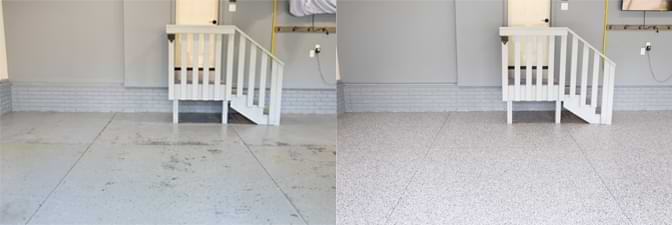
Before & After: Polyurea and polyaspartic floor coatings are similar subtypes of polyurethane, but not all coatings are created equal. Polyurea dries quickly and is more susceptible to UV damage and install errors.
Which is better: polyurea or polyaspartic?
Polyaspartic is a type of polyurea, but polyaspartics have been modified to overcome the challenges polyureas face. Polyaspartics have an extended pot life which makes them easier to install and helps improve adhesion to the concrete surface. They are also more UV resistant. However, it’s important to remember that not all polyaspartics are created equal – in order to have full confidence the product won’t yellow over time, the polyaspartic needs to be 100% aliphatic. Many polyaspartics contain only 51% aliphatic material, leaving you open to the risk of UV discoloration.
Problems With Polyurea Floor Coatings
Polyurea comes with disadvantages that every homeowner should understand. From tedious application to failed bonding, polyurea is not for those who want a long-lasting garage floor.
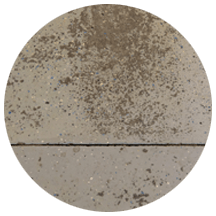
Fast Curing Time
Extremely fast curing time can lead to a weaker bond and greater chance of install imperfections showing.
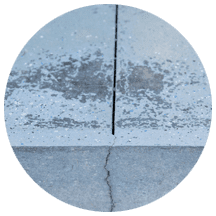
Reactive to UV
Aromatic polyurea is reactive towards UV radiation, leaving it to possibly change colors or break the bonding.
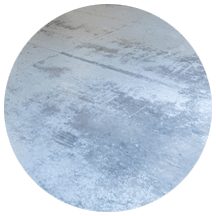
Highly Reactive
The setting of the polyurea coating can be impacted without proper “wetting out,” causing poor adhesion to the surface.
Epoxy Floor Coating Vs. Polyurea Vs. Polyaspartic
Epoxy is perhaps the most widely used garage floor coating material, holding plenty of advantages depending on what you’re looking for. Epoxy is inexpensive and can even work in DIY applications – but there are downsides to this popular floor coating.
Epoxy is thick like molasses, meaning it won’t get into every crack and crevice of a concrete garage floor – leading to adhesion problems down the road. Polyaspartic has the consistency of water and polyurea is even thinner, making it easier to soak into the concrete pores.
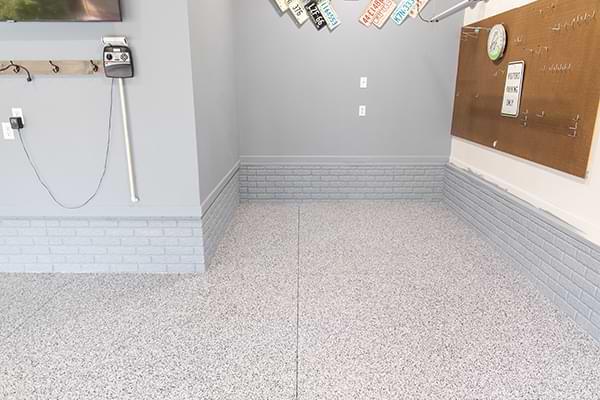
Hello Garage polyaspartic floor coating is beautiful, durable and installs in about a day.
Both polyaspartic and polyurea have short cure times – about a day for polyaspartic and even less -minutes- for polyurea. Infact, polyurea cures so quickly that it leaves virtually no time to correct errors. Neither are great for DIY, but the final product also lasts far longer than epoxy DIY coatings, so you won’t have to redo them every few years after that initial professional installation.
Reliable And Durable: Polyaspartic Floor Coating
Polyaspartic is a tried-and-true method of redoing your garage floor. It has a wide variety of color choices and is extremely durable when it comes to tough chemicals. It will protect your floors for years and bonds well to bare concrete. When redoing your garage, the clear choice is polyaspartic.
At Hello Garage, your local team of professionals are able to provide you with top notch service and years of industry knowledge in garage floor coatings.
Schedule your free consultation and estimate with a Garage Guru near you.